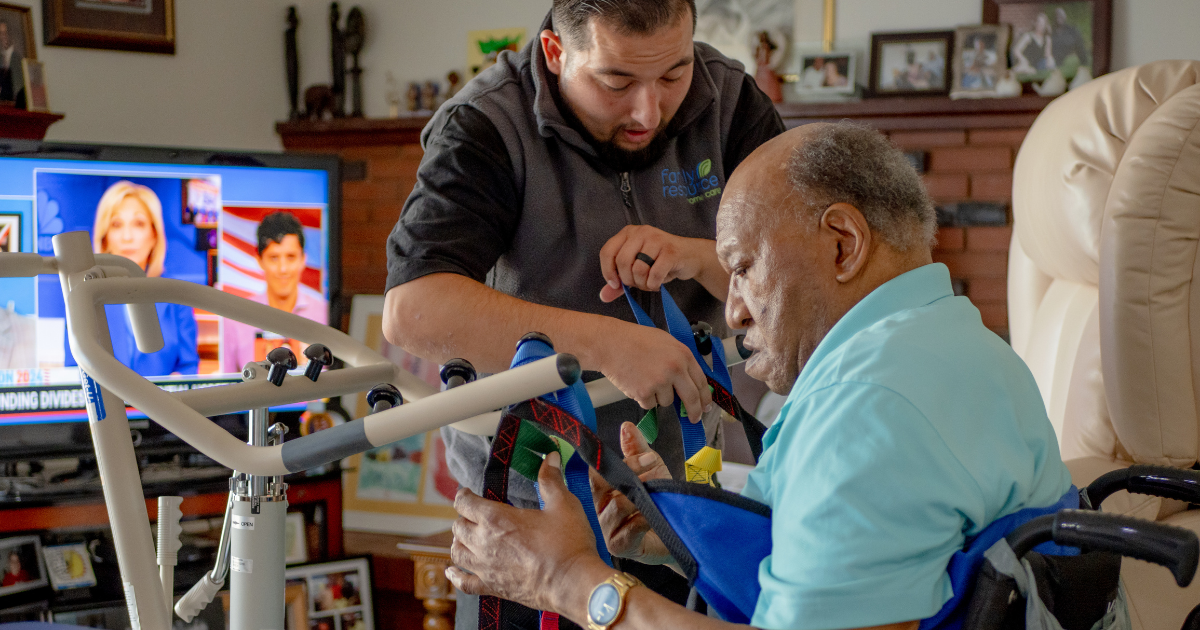Unlocking the Full Potential of Aging in Place
The desire to age gracefully in the comfort of one’s home is a shared aspiration for many elderly individuals. To make this dream a reality, it’s crucial to adopt a holistic approach that combines geriatric care and home care. Let’s examine the two components that can work together synergistically to provide comprehensive support for seniors looking to maintain their independence and well-being in their own homes.
Geriatric Care: A Foundation of Knowledge and Expertise
Geriatric care, often referred to as gerontology, is a specialized field of healthcare focused on the unique needs and challenges of older adults. It’s provided by healthcare professionals with advanced training in geriatrics, such as geriatricians, gerontological nurse practitioners, and geriatric social workers. The primary goal of geriatric care is to optimize the overall health and quality of life for seniors.
Key Aspects of Geriatric Care
- Comprehensive Health Assessments: Geriatric care begins with a thorough assessment of a senior’s physical, mental, and emotional health. This evaluation helps identify any medical conditions, cognitive impairments, or emotional concerns that may require attention.
- Medication Management: Geriatric care professionals are well-versed in the complexities of medication management for seniors, ensuring that prescriptions are optimized for safety and effectiveness.
- Disease Management: For seniors with chronic health conditions, geriatric care specialists create personalized care plans that address their specific needs and monitor their conditions over time.
- Cognitive Health: Geriatric care encompasses the assessment and management of cognitive health issues like dementia and Alzheimer’s disease, promoting cognitive well-being through various interventions.
- Emotional Support: Seniors often face emotional challenges, such as loneliness, depression, and anxiety. Geriatric care providers offer support and counseling to address these issues.
Home Care: The Supportive Pillar of Aging in Place
Home care is a flexible and personalized form of assistance designed to help seniors with their daily activities and needs while allowing them to remain in their own homes. Home care services are typically provided by trained caregivers or certified nursing assistants (CNAs). These professionals offer non-medical support and companionship to enhance seniors’ quality of life.
Key Aspects of Home Care
- Personal Care: Home care aides assist with activities of daily living (ADLs) such as bathing, dressing, grooming, and toileting.
- Mobility Support: Seniors with mobility challenges receive assistance with walking, transferring, and exercises to maintain strength and flexibility.
- Meal Preparation: Home care providers help with meal planning, preparation, and feeding, ensuring that seniors receive balanced nutrition.
- Medication Reminders: Caregivers can remind seniors to take their medications as prescribed and help with medication management.
- Companionship: Emotional well-being is enhanced through social interaction, conversation, and companionship.
The Synergy of Geriatric Care and Home Care
- Comprehensive Assessments: Geriatric care professionals conduct in-depth assessments to understand a senior’s health status and medical needs. This information guides home care providers in delivering personalized care that addresses specific concerns.
- Medication Management: Geriatric specialists create medication regimens tailored to the senior’s health profile. Home care aides can provide reminders and assistance with medication administration.
- Disease Management: Seniors with chronic illnesses benefit from the collaborative approach. Geriatric care experts manage medical aspects, while home care providers assist with daily activities to support overall health.
- Cognitive and Emotional Well-being: Geriatric care focuses on mental and emotional health. Home care providers offer companionship and emotional support, promoting cognitive and emotional well-being.
- Safety and Monitoring: Home care providers maintain a safe living environment for seniors, assisting with mobility and fall prevention strategies.
Aging in place can be a fulfilling and feasible option for many seniors when geriatric care and home care collaborate effectively. By integrating the expertise of geriatric care specialists with the personalized support of home care providers, elderly individuals can enjoy a holistic approach to aging that addresses their medical, emotional, and daily living needs. This combination ensures that seniors receive the comprehensive care they deserve while continuing to savor the comforts of home. If you’re looking for reliable home care in Washington, Oregon, or Idaho, look no further. Family Resource Home Care is more than happy to be the resource near you, providing the support seniors need to age gracefully in the place they call home.
Sources:






